
Leveraging Data for Health Care Innovation
As creators and aggregators of data, hospital and health systems are in a unique position to improve patient experience and outcomes, and reduce cost. By adopting a comprehensive data strategy, they can build a high-performance analytics infrastructure and use data for health care innovation to create more value for their patients and their communities. Data-driven health care organizations can provide fresh insights on how to meet patients’ needs and future market trends and thwart potential disruptors.
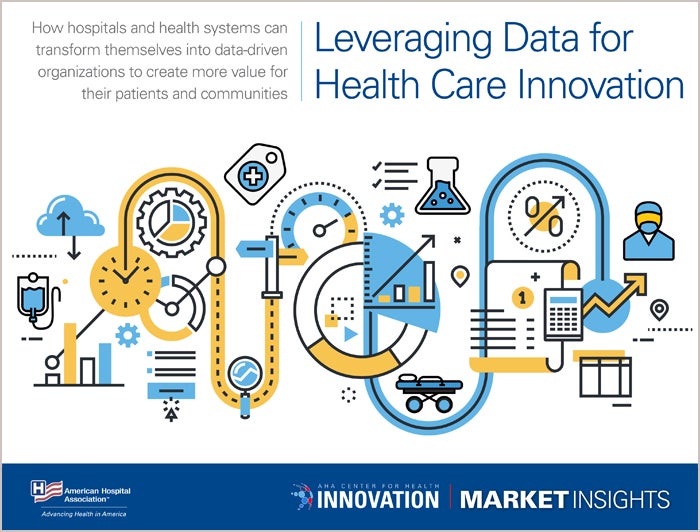
Leveraging Data for Health Care Innovation
As health care organizations adopt more value-based, care delivery models, the integration of data and information assets into care delivery will be table stakes. Health care providers need to be able to leverage their unique position as creators and aggregators of data to improve the patient experience and outcomes, and reduce cost. This report from the American Hospital Association’s Center for Health Innovation offers hospital and health system leaders a blueprint for becoming an organization that leverages data for health care innovation and for improving clinical, financial and operational performance.
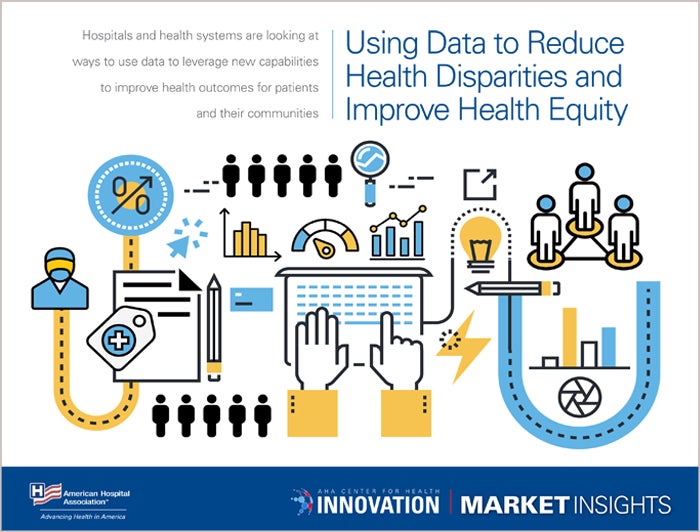
Using Data to Reduce Health Disparities and Improve Health Equity
COVID-19 raised public awareness of racial and ethnic disparities in health and health care. Hospitals and health systems have the opportunity to use data to identify outcome disparities that are the result of inequities and societal factors that influence health. They can apply these data to drive their strategy to advance health equity. This report from the American Hospital Association’s Center for Health Innovation offers hospital and health system leaders practical guidance and examples on how to use data to take three steps: identify, investigate and intervene.
Defining a Comprehensive Data Strategy to Shape the Health Care of Tomorrow

On this AHA Center for Health Innovation podcast, Don Trigg, president of Cerner, talks about how hospitals and health systems can focus on data and data assets to advance their organizational strategies. And as consumerism takes hold in health care, health care leaders are rethinking what their organizations need to look like and what data they need to inform the approach going forward. He discusses first mile and last mile data strategies that are critical to achieving scale and meaningful impact for their patients.
Resources
Assessment Tool
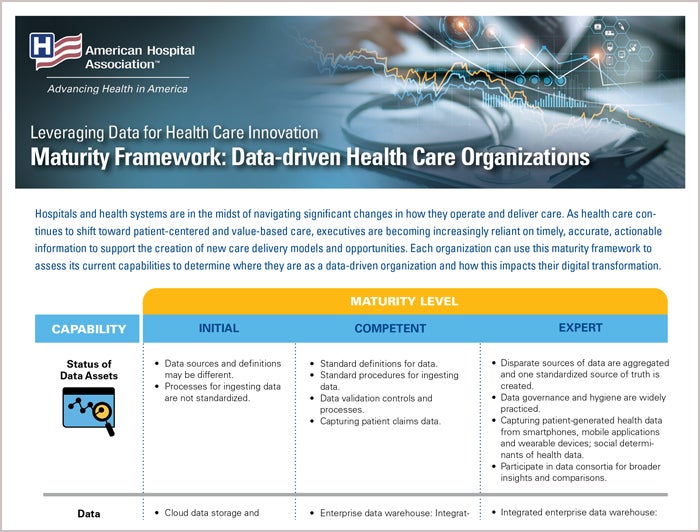
Maturity Framework for Data-driven Organizations
Executives are becoming increasingly reliant on timely, accurate, actionable information to support the creation of new care delivery models and opportunities. Organizations can use this maturity framework to assess current capabilities and determine where they are as a data-driven organization and how this impacts their digital transformation.
Discussion Guide Locked
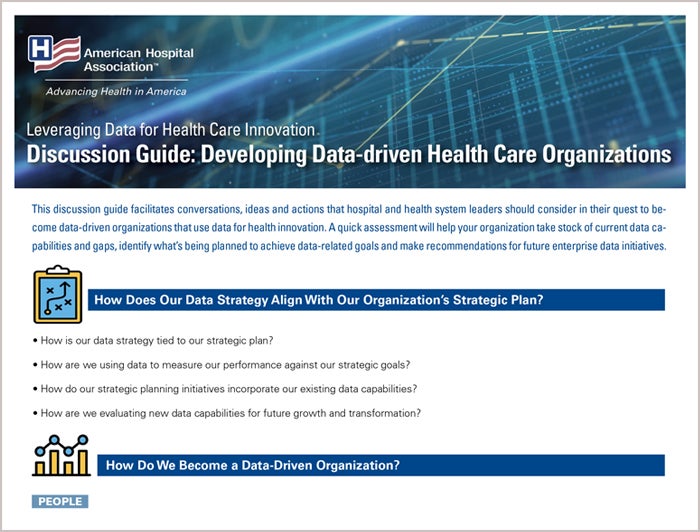
Strategic Questions for Leadership Teams
As hospital and health care systems continue to build and refine their data strategies, leaders need to answer these 18 questions to take stock of current data capabilities and gaps, and ensure their data strategy is aligned with their organizational strategy.
Checklist
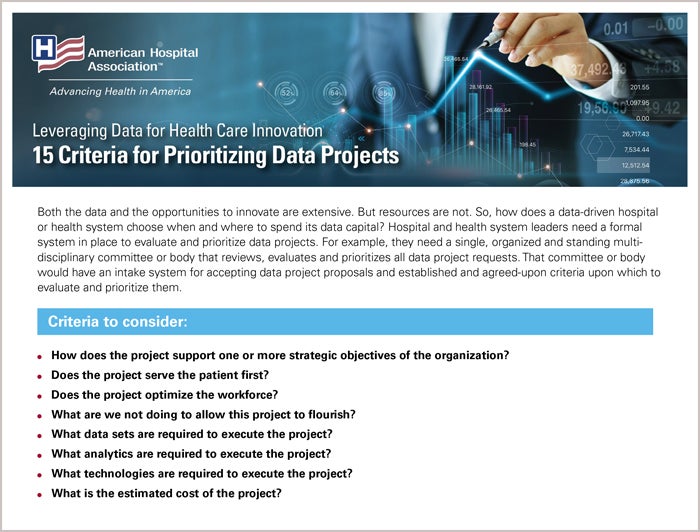
Criteria for Prioritizing Data Projects
Both the data and the opportunities to innovate are virtually infinite. But resources are not. So, how does a data-driven hospital or health system choose when and where to spend its data capital? Here are 15 criteria for hospital and health system leaders need to consider when evaluating and prioritizing data projects.
Giving Data a Seat at the Table
How does the CEO’s belief in the power of data to drive innovation manifest itself in the C-suite and throughout the rest of the organization? One way is to give data a seat at the table. Hospitals and health systems should consider creating such positions as:

Chief Analytics Officer

Chief Data Officer

Chief Digital Officer

Chief Medical Information Officer

Chief Innovation Officer

Chief Technology Officer



